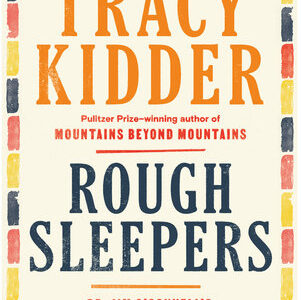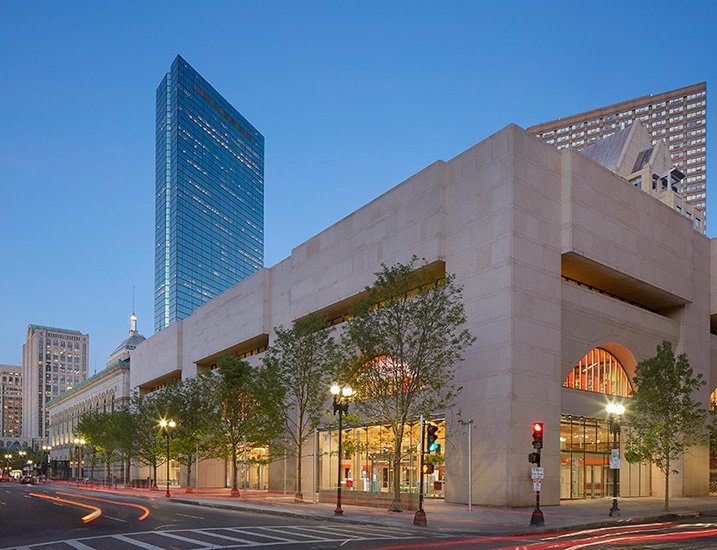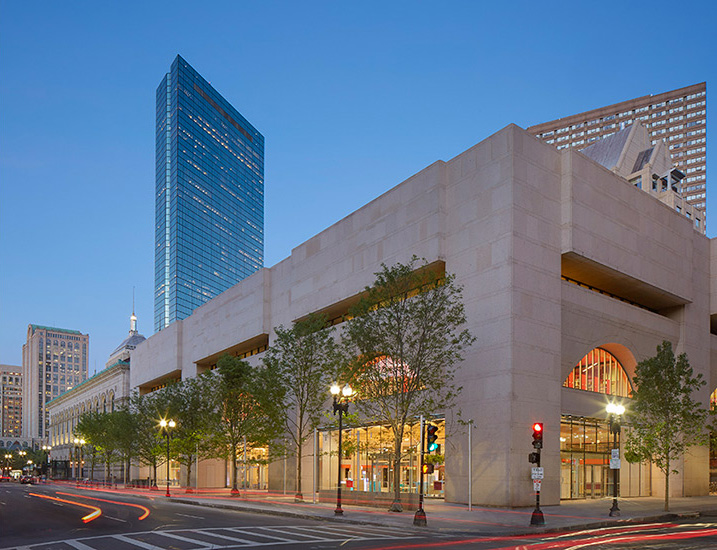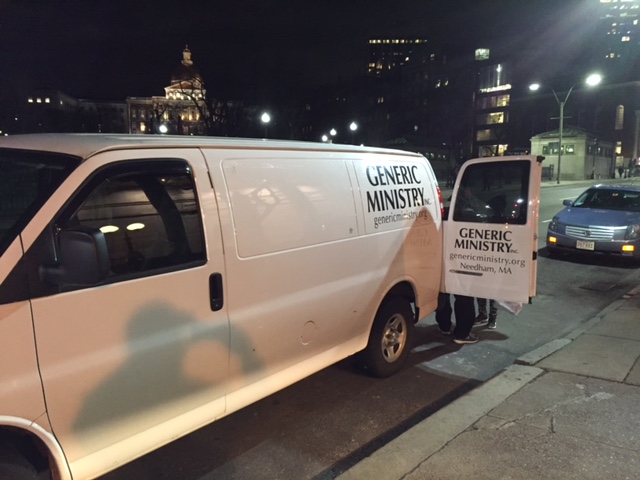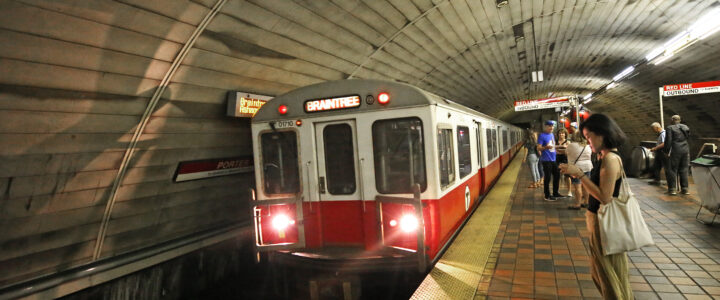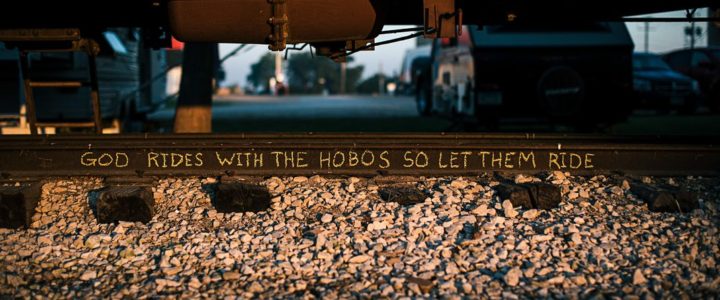One of the requirements of the street retreat was to raise funds to be distributed to community-based social service organizations and public nonprofits that serve people experiencing homelessness, plus social action work that Bread Loaf Mountain Zen Community (BLMZC) does. Every participant was asked to raise $500 in donations. This exercise in asking for money would be a warm-up for begging on the streets in Boston. For each donation I received, I added a prayer bead to my mala bracelet, with each bead representing a person sponsoring my practice. I wore the bracelet or carried it in my pocket for the entire street retreat and thought of my sponsors as I fingered each bead.

As a result of their generosity, the sponsors of my mala contributed $900. I’m deeply grateful for this support.
Collectively, the participants of the Boston Street Retreat raised $4,552. (Included in that amount is the balance of the $20 I received while begging on the streets of Cambridge less the bottle of kombucha I bought to use a bathroom and which I shared with Mike and Peter during a begging break and less the $5 we gave to a stranger begging down the block from us.) One third of that amount would go to Gather and other BLMZC social action projects. That left $3035 for us to distribute to other organizations.
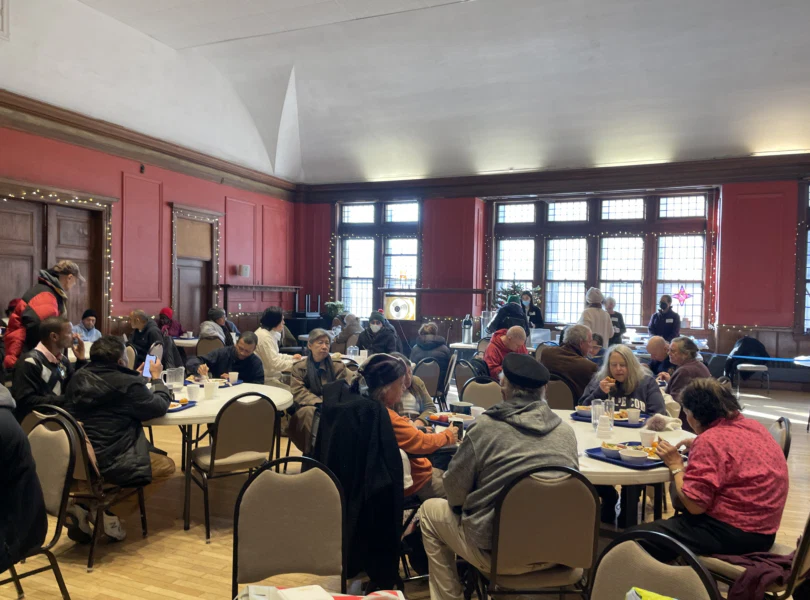
Those of us who participated in the Boston Street Retreat, except for Helena, who wasn’t able to join us, met in mid-November via zoom. Though it had been almost 3 months since we’d seen or spoken to one another, time collapsed as I saw their faces and heard their voices again. We’d been together for only four days, but those were intensely vulnerable days and the bond that we formed is surprisingly strong. My heart leapt with joy as I listened to my friends share their reflections on the retreat and life afterwards.
Here is how we distributed the $3035:
- Outdoor Church: A church for homeless and street-involved men and women in Cambridge, Outdoor Church offers several ministries. Our Street Retreat group joined them on Saturday to handout sandwiches, juice boxes, snacks, socks, and toiletry kits from carts as we walked the streets of Cambridge. On Sunday, our last day, we attended an outdoor service at a public square, led by an Outdoor Church minister. Together with all who gathered, we sang and prayed, a motley choir raising our voices to an unconditionally loving God.
- Peace House: With skies dropping heavy rain in the middle of our Street Retreat, we were fortunate to receive an invitation from Peace House to sleep in the monastery, sheltered from the rain. We did not immediately accept the invitation. Each member of the group offered their perspective. Some felt that staying overnight in a monastery defied the intent of the Street Retreat. Others were concerned with getting soaking wet, cold and potentially ill. Ultimately we all agreed to accept the invitation, knowing that we would be sleeping on a hard floor and considering that if someone living on the streets were invited to take shelter at Peace House, they would likely accept. As I had the night before, I laid out cardboard on the hardwood floor and slept fitfully, shifting often in an effort to find a semblance of comfort. The next morning we left after zazen and Council, into the rain, taking shelter at the Cambridge library. With the rain continuing into the evening, we spent a second night at Peace House, where we again felt welcomed by kindness and generosity.
- St. Francis House: Located in the heart of Boston, this day shelter is the largest in Massachusetts, welcoming up to 600 individuals experiencing homelessness each day. After waking to the sound of a fire alarm in a nearby building, we rolled up our blankets and silently walked on our first morning in Boston to a park and then to St. Francis House. Just past dawn a long line of people snaked from the entrance of St. Francis House. Over the four days of the Street Retreat I learned that waiting is a significant component of receiving services. An hour later a burly Black man ushered us into the building where we waited in another line to get a St. Francis House I.D. that was required to receive services. The system was glitching. When it was finally my turn at the window, a flustered Black woman asked me where I’d slept that night. When I answered, her eyes widened and she said, “I’m getting you a social worker.” My eyes widened. I said I didn’t need one, that I was with a group of friends. My new I.D. allowed me to enter the dining area where I could go through the buffet line as many times as I wanted. One hard-boiled egg at a time. I sat with my tray of food and hot coffee at a table across from a young man who exuberantly ate a total of 8 hard-boiled eggs and left his applesauce untouched.
- Salvation Army in Cambridge: After breakfast at St. Francis House we walked across the river to the Salvation Army in Cambridge. Volunteers at the kitchen window offered the fixings for sandwiches, chips and fruit. As a vegetarian, I opted for a cheese sandwich. The woman, about my age, urged her middle-aged male companion to give me extra cheese. Though my stomach was still full from breakfast, I gratefully accepted the food generously offered, not knowing when I would eat again. I sat at a table across from two women in their 70s. Millie, with long grey ponytails, shared how she had been homeless for a year after her house was quarantined as a result of a resident’s hoarding. The other woman also had housing. It seemed they came regularly to the Salvation Army mainly for companionship and kindness.
- Generic Ministry: Charmed by and appreciative of the services offered by this group on our first night of the Street Retreat, we decided to distribute an equal portion of the funding to Generic Ministry.
- Christ Church in Cambridge: Seated at round table-clothed tables, we were served a plated meal. Much to my delight they offered a vegetarian option. Here I met Rachel, a highly intelligent middle-aged woman who writes regularly about human rights for women dealing with violence. She pushed a cart filled with belongings. When I asked if she was staying in a shelter, Rachel explained that her stalker would find her there, so she lives on the streets of Cambridge.
- First Church in Cambridge: This UCC church offers a Friday Cafe luncheon which was delicious and served by a host of friendly volunteers. We sat at round tables in a brightly lit parish hall. Millie arrived shortly after our group sat down, as did Rachel. My heart was glad to see familiar faces and have the opportunity to get to know these individuals better.
- First Korean Church In Cambridge: We were given a card with a number and ushered into large parish room with many long rows of tables and, perpendicular to those, a long row of tables on which were piled package food. Millie spotted me as I looked for a place to seat, motioned for me to sit beside her. The room was loud, people were impatient, while a pastor led us in prayer and then invited those seated in the first row to go to the buffet line. I followed Millie, who insisted I stand in front of her in the line. So much food! Many vegetarian options.
- The Independent Newspaper: In support of Rachel and her work, we donated $300 to her newspaper.

